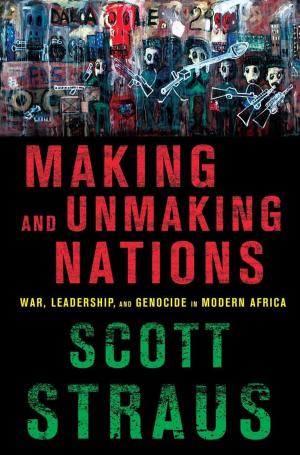Fictions of Dignity
Embodying Human Rights in World Literature
Fiction & Literature, Literary Theory & Criticism, Nonfiction, Social & Cultural Studies, Political Science| Author: | Elizabeth S. Anker | ISBN: | 9780801465192 |
| Publisher: | Cornell University Press | Publication: | November 16, 2012 |
| Imprint: | Cornell University Press | Language: | English |
| Author: | Elizabeth S. Anker |
| ISBN: | 9780801465192 |
| Publisher: | Cornell University Press |
| Publication: | November 16, 2012 |
| Imprint: | Cornell University Press |
| Language: | English |
Over the past fifty years, debates about human rights have assumed an increasingly prominent place in postcolonial literature and theory. Writers from Salman Rushdie to Nawal El Saadawi have used the novel to explore both the possibilities and challenges of enacting and protecting human rights, particularly in the Global South. In Fictions of Dignity, Elizabeth S. Anker shows how the dual enabling fictions of human dignity and bodily integrity contribute to an anxiety about the body that helps to explain many of the contemporary and historical failures of human rights, revealing why and how lives are excluded from human rights protections along the lines of race, gender, class, disability, and species membership. In the process, Anker examines the vital work performed by a particular kind of narrative imagination in fostering respect for human rights. Drawing on phenomenology, Anker suggests how an embodied politics of reading might restore a vital fleshiness to the overly abstract, decorporealized subject of liberal rights.
Each of the novels Anker examines approaches human rights in terms of limits and paradoxes. Rushdie’s Midnight’s Children addresses the obstacles to incorporating rights into a formerly colonized nation’s legal culture. El Saadawi’s Woman at Point Zero takes up controversies over women’s freedoms in Islamic society. In Disgrace, J. M. Coetzee considers the disappointments of post-apartheid reconciliation in South Africa. And in The God of Small Things, Arundhati Roy confronts an array of human rights abuses widespread in contemporary India. Each of these literary case studies further demonstrates the relevance of embodiment to both comprehending and redressing the failures of human rights, even while those narratives refuse simplistic ideals or solutions.
Over the past fifty years, debates about human rights have assumed an increasingly prominent place in postcolonial literature and theory. Writers from Salman Rushdie to Nawal El Saadawi have used the novel to explore both the possibilities and challenges of enacting and protecting human rights, particularly in the Global South. In Fictions of Dignity, Elizabeth S. Anker shows how the dual enabling fictions of human dignity and bodily integrity contribute to an anxiety about the body that helps to explain many of the contemporary and historical failures of human rights, revealing why and how lives are excluded from human rights protections along the lines of race, gender, class, disability, and species membership. In the process, Anker examines the vital work performed by a particular kind of narrative imagination in fostering respect for human rights. Drawing on phenomenology, Anker suggests how an embodied politics of reading might restore a vital fleshiness to the overly abstract, decorporealized subject of liberal rights.
Each of the novels Anker examines approaches human rights in terms of limits and paradoxes. Rushdie’s Midnight’s Children addresses the obstacles to incorporating rights into a formerly colonized nation’s legal culture. El Saadawi’s Woman at Point Zero takes up controversies over women’s freedoms in Islamic society. In Disgrace, J. M. Coetzee considers the disappointments of post-apartheid reconciliation in South Africa. And in The God of Small Things, Arundhati Roy confronts an array of human rights abuses widespread in contemporary India. Each of these literary case studies further demonstrates the relevance of embodiment to both comprehending and redressing the failures of human rights, even while those narratives refuse simplistic ideals or solutions.















